Best No ID Verification (KYC) Betting Sites – July 2025
List of No ID verification Bookmakers
With a wealth of different operators available, it’s a challenge for bettors to find the best one. These operator reviews provide the most critical details for anonymous sports players. So dive into the toplist and reviews to discover the perfect site without ID checks for you.
1. Betpanda – Best Anonymous Sports Site
We placed Betpanda at the very top of our list because it’s an anonymous and also VPN-friendly operator. These perks are complemented with access to all major leagues and tournaments across over 50 sports and more than 20 esports, and excellent player reviews.

In our review of Betpanda, we also discovered that it integrates with the Bitcoin Lightning Network, a payment protocol designed to speed up Bitcoin transactions; so, if you’re seeking fast and low-cost cryptocurrency payments, this is the operator you should pay attention to. Additionally, many popular cryptocurrencies are accepted, and there are engaging promotions that include weekly free bet, combo boosts, and weekly sports tournaments.
-
Pros
-
 Modern and easy-to-use website
Modern and easy-to-use website -
 Good selection of sports and esports & odds
Good selection of sports and esports & odds -
 Buy crypto option
Buy crypto option
-
Cons
-
 Limited RG tools
Limited RG tools
2. Trust Dice – Best Overall Operator Accepting Crypto With No Identity Confirmation
As the name suggests, TrustDice is a reliable site to play and one of the most respected brands. Its exceptional customer service and user experience make it a top choice.
The simple, attractive design, a wide range of markets, including in-play wagering, allows placing bets anonymously on ongoing events.

In our TrusdDice Review, we found support for a range of leading cryptocurrencies, including Bitcoin, Ethereum, and Tether, that offer fast deposits and withdrawals.
Registration is simple with no ID documents required to prove your identity, and there’s a $5,000 equivalent daily withdrawal limit – a solid option for casual sports bettors.
-
Pros
-
 Up to 30,000 USDT is available as a 225% matched welcome bonus
Up to 30,000 USDT is available as a 225% matched welcome bonus -
 Users can earn tokens which they can then stake to earn extra crypto
Users can earn tokens which they can then stake to earn extra crypto -
 Fantastic selection of sports
Fantastic selection of sports
-
Cons
-
 The welcome bonus has high wagering requirements
The welcome bonus has high wagering requirements
3. Winz.io – Best for Placing Bets on eSports
Winz.io is where it’s at if you’re looking to bet on eSports. It has good odds on esports markets, including CSGO, Dota 2, LoL, and Valorant. Odds are as competitive as any we’ve seen at crypto sites, and it has a solid reputation for trust and treating players fairly.

Creating an account only takes a few minutes and does not require user authentication. Support for 11 most commonly used cryptocurrencies makes banking a breeze, and in our Winz.io review, we found welcome bonuses available on your first deposit.
With good customer support and a demonstrable track record of keeping their punters happy, we recommend it as one of the top anonymous betting sites.
-
Pros
-
 Fantastic choices of eSports and sports markets
Fantastic choices of eSports and sports markets -
 Players can claim the welcome bonus without wagering requirements
Players can claim the welcome bonus without wagering requirements -
 No fees on financial transactions
No fees on financial transactions
-
Cons
-
 Expanding the range of promotions would be a positive
Expanding the range of promotions would be a positive
4. Crashino – Best for Trying Provably Fair Games
Register for your account in just a few steps at Crashino, our pick for the best site for provably fair games.
Alongside their impressive sports offering, Crashino is a safe and reliable choice for provably fair games such as Dice, Mines, and Plinko. Verifying by the blockchain as fair and random, it’s the perfect spot for trying out crypto games.

The ID requirements here are non-existent. With crypto deposits and withdrawals supported in over 12 major cryptocurrencies, there is no need to verify your identity to bet at Crashino.
Crashino offers a good user experience both as a sports site and as a casino, as you can find in our Crashino review. The selection and quality of the provably fair games are second to none, making it our top pick for those looking to place bets with crypto.
-
Pros
-
 Anonymous play is possible
Anonymous play is possible -
 Plenty of sports events and lots of markets
Plenty of sports events and lots of markets -
 Provably fair games
Provably fair games
-
Cons
-
 Low maximum withdrawal limit
Low maximum withdrawal limit
5. Thunderpick – Best for Low Minimum Stake
Bet on Thunderpick from as little as 100 coins, amongst the lowest of any of the sports sites that have made our shortlist. Given its favorable odds, strong reputation, and extensive selection of cryptocurrencies, it is the ideal choice for our top low minimum stake anonymous platform.

You don’t need ID documents to set up an account at Thunderpick; click the button to begin the registration process, enter your basic details, and you’ll be ready to bet within a minute.
With support in Bitcoin, Ethereum, Ripple, and all the usual suspects, it’s flexible on the banking side. As our Thunderpick review shows, we had a great customer experience here, and this operator means business in the customer services department.
-
Pros
-
 The low minimum stake makes Thunderpick accessible to all
The low minimum stake makes Thunderpick accessible to all -
 Plenty of market options across many different sports
Plenty of market options across many different sports -
 Low wagering requirements on the welcome bonus
Low wagering requirements on the welcome bonus -
 It has a great VIP scheme
It has a great VIP scheme
-
Cons
-
 The odds can be pretty high
The odds can be pretty high
6. BC.Game – Best Sports Site for Crypto Bonuses
BC.Game is our best no-KYC sports site for exciting sports bonuses. If you’re looking to stretch your budget or enjoy some freebies, the operator has you covered with plenty of promos from the moment you sign up. Minimum bets? They start as low as $1.

There’s a 100% bonus + 20 Free Bets as a sports welcome bonus for all new players, and a minimum deposit of $10.00. You can use it for over 16 sports-specific promos, including NFL stakebacks, Cricket triple winnings, and even a CS2 Major free bet for esports lovers; check them all in our BC.Game review.
Sign up takes under three minutes, and it’s hassle-free; just hit the sign-up button, register, and dive into their fantastic sports bonuses. There’s typically a 10x playthrough requirement within 30 days. That’s super reasonable.
-
Pros
-
 Up to 1BTC is available daily with the bonus wheel
Up to 1BTC is available daily with the bonus wheel -
 All bonus wheel crypto has no wagering requirements
All bonus wheel crypto has no wagering requirements -
 Players can potentially avoid user authentication
Players can potentially avoid user authentication
-
Cons
-
 No regular promotions on sports bets
No regular promotions on sports bets
7. Vave – Exclusive for Crypto-Only Wagering
Vave is a crypto-only platform building its reputation on the back of a quality customer experience. Verified as a trustworthy place to bet that pays out quickly, Vave has won the unanimous support of our team of reviewers as the best in class for crypto-only betting.
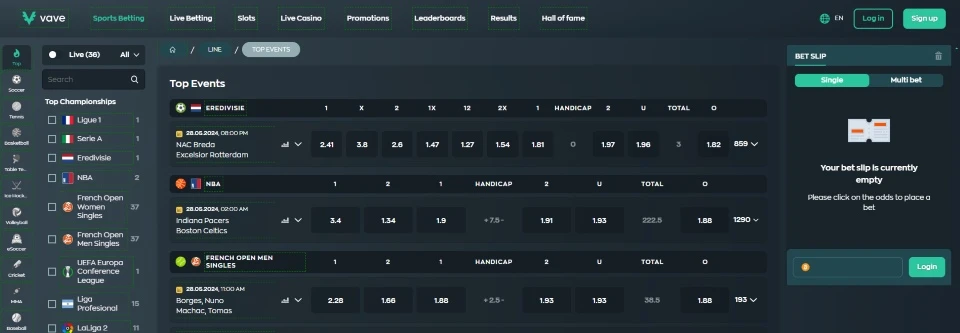
Vave stands out for offering competitive odds across both traditional and esports events, catering to bettors of all levels. The platform provides a broad range of sports markets and a solid live betting experience, making it a great choice for sports enthusiasts looking for variety.
Sign up is easy, with no need to submit personal documentation at registration or prior to withdrawal. There’s an option to buy crypto through the platform, which makes it all the easier to bet with your cryptocurrency of choice.
-
Pros
-
 Up to 1 BTC available as a welcome bonus
Up to 1 BTC available as a welcome bonus -
 Anonymous play is a feature of Vave
Anonymous play is a feature of Vave -
 Plenty of sports and eSports with lots of markets
Plenty of sports and eSports with lots of markets
-
Cons
-
 The 40x wagering requirements are above the market average
The 40x wagering requirements are above the market average
8. Betcoin – Best for Market Selection
Betcoin offers a huge selection of sports wagering markets, covering all the major bases as well as some pretty niche sports offers. Over 50 different sports are available, including a plethora of eSports markets, making it our top choice for market selection.
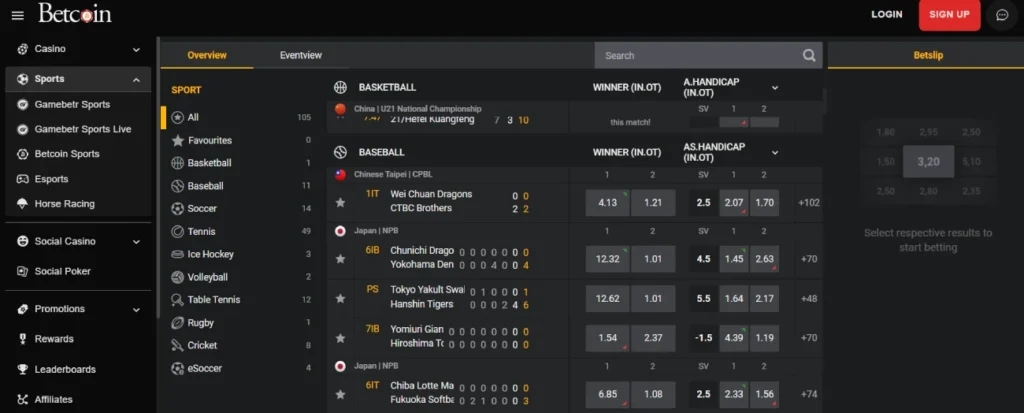
With Betcoin, you’re signing up for anonymous betting with crypto. With your email address, username, and password, you’re free to deposit in any of the supported cryptocurrencies; check all accepted currencies in our Betcoin review.
Payments are fast on both the deposit and withdrawal side, with no unnecessary hold-ups. The huge selection of sporting markets is backed up by good customer service, with an equally impressive gaming offering.
-
Pros
-
 Amazing choice of different cryptocurrencies
Amazing choice of different cryptocurrencies -
 The welcome bonus has low wagering requirements
The welcome bonus has low wagering requirements -
 Instant crypto payment processing
Instant crypto payment processing
-
Cons
-
 A significant number of countries have restrictions
A significant number of countries have restrictions
9. Duelbits – Best for Free Bets
Free bets galore at Duelbits, from the sign-up bonus to ongoing promotions throughout the year. In addition to providing generous free bets with low wagering requirements, the platform is building its reputation as a good place to play.
With some high-profile sports sponsorships in place, it’s here for the long haul, quickly establishing itself as one of the best performers in the no ID verification betting platforms category.

Go check our Duelbits review to find out which markets are available. Deposit and bet on markets you fancy after you set up your account with just an email.
It supports key cryptocurrencies like Bitcoin, Litecoin, and Ethereum with an easy deposit and withdrawal process. Additionally, there’s solid customer support, an attractive user interface, and competitive odds.
-
Pros
-
 50% rakeback
50% rakeback -
 No minimum deposit limit
No minimum deposit limit -
 Instant payout of winnings
Instant payout of winnings
-
Cons
-
 Lack of traditional welcome bonus
Lack of traditional welcome bonus -
 Limited information on the website
Limited information on the website
10. Coinplay – Best for Cryptocurrency Choice
Coinplay goes further than many other no KYC betting sites in terms of cryptocurrency choice, with a range that includes common cryptocurrencies like Bitcoin, Ethereum, and Dogecoin, as well as less frequently used choices like Polkadot and Cosmos.
Payments are processed quickly on deposits and withdrawals with fair minimums and maximums.

You don’t need to verify your ID as part of the account setup process; registration takes a couple of minutes from top to bottom, including the time it takes to make your first crypto deposit.
A well-designed sports site, the layout and format of the platform are very intuitive. We liked the selection of markets here too, which presents a good number of wagering options at competitive odds. Loads of cryptocurrency options also make it a great choice, and you can read more about it in our Coinplay review.
-
Pros
-
 Massive selection of different cryptocurrencies
Massive selection of different cryptocurrencies -
 A generous welcome bonus & extra promotions
A generous welcome bonus & extra promotions -
 Lots of superb sports and market options
Lots of superb sports and market options
-
Cons
-
 No ability to play with fiat currencies
No ability to play with fiat currencies
What is a No ID Verification (KYC) Website?
No KYC betting sites allow you to place bets without verifying your identity, unlike traditional sports sites that require proof of address and photo ID. This eliminates delays in registration and payment processing, enabling quick account setup and hassle-free transactions.
Anonymous betting sites operate similarly to traditional ones, but stand out due to diverse payment options, like Pay N Play by Trustly, which enables instant gameplay directly from your bank account. They are often licensed by international gaming regulators, ensuring a secure environment.
No KYC Sportsbook Advantages
By choosing crypto sports betting sites that don’t require identity verification, bettors unlock a more efficient, anonymous, and secure experience.
1. Anonymity
No-verification enhances privacy, letting you place bets without submitting personal documents, ensuring your sensitive data remains protected.
2. Avoid Data Breaches
Non-KYC sportsbooks don’t store personal data, reducing the risk of cyberattacks and ensuring your financial information stays secure.
3. Instant Withdrawals
With cryptocurrency payments, withdrawals are processed instantly once approved, bypassing delays associated with fiat payment systems.
4. More Competitive Odds
Lower operational costs allow these platforms to offer better odds, maximizing returns on winning bets.
5. Faster Sign-Up Process
Create an account within seconds using just an email address. Combined with crypto deposits, you can start placing bets minutes after signing up.
6. Greater Privacy
No need to upload ID or utility bills for account creation or withdrawals. VPN use is often allowed, enhancing discretion and accessibility from restricted regions.
7. Protect Your Sensitive Data
By not requiring personal information, these sites minimize the risk of cybercrime and identity fraud while maintaining user security.
8. Lack of Geographical and Banking Restrictions
Potential Risks of a Non-KYC Sportsbook
While non-KYC platforms offer convenience and privacy, they come with risks. It’s essential to choose reputable operators carefully to avoid potential downsides.
1. Security Concerns
Non-KYC sites are often less regulated, leaving security and fairness at the discretion of the operator. Ensure the site has a valid license and a solid reputation to protect yourself from unethical practices.
2. Legality Issues
The legal status of online betting and cryptocurrency use varies by country. Consider any local restrictions, tax implications, or penalties before joining these platforms.
3. Potential for Fraud
A lack of stringent licensing increases the risk of fraud or disputes. Some sites may operate without any oversight, so stick to verified and recommended operators for a safer experience.
4. Limited Player Protection
Are No Verification Betting Sites Safe?
These sites can be safe if you choose reputable platforms. However, the lack of regulation means extra caution is needed.
Fraud, security, and privacy risks are common concerns. It’s crucial to research thoroughly before signing up.
How to Choose a No KYC Sports Site?
Our recommendations are based on strict criteria to ensure safety, reliability, and competitive offerings. Only sites that meet these benchmarks make our list, ensuring you can bet confidently on trusted platforms.
Is it Legal to Bet Without Identification?
There’s no simple yes or no answer here – it depends entirely on where you live, and the local laws and regulations around betting online. There may also be laws around cryptocurrency. It’s up to you to assure yourself of the legal implications before choosing to sign up with any of the sports sites and place bets with crypto.
Generally, you’ll find that most no KYC betting sites are welcoming to players from around the world, including those playing by VPN. Because there is no need for these operators to verify your personal documents, they often don’t even know where in the world their customers are playing from – and many aren’t concerned either, as long as you adhere to the terms and conditions.
Play it straight, and you’ll have no issues with your no-KYC betting site in the vast majority of cases.
Popular No KYC Betting Platforms
🔥Will’s Hot Take on No KYC Betting Sites
These sites are a solid choice for the best odds. Even if you’re not too fussed about wagering with crypto or the anonymity, it’s always worth looking at the odds at no-KYC crypto bookmakers before placing your bets.
Especially if you’re betting larger amounts, better odds at no-KYC sites can be worth a significant boost in your winnings if your bet comes in.
How to Sign Up on Betting Sites Without ID Verification?
By definition, signing up with these platforms is a fast and anonymous process. Without ID confirmations and delays, it’s a hassle-free, straightforward registration.
If you follow the steps below, you can be up and running in minutes.







Available Bonuses at Betting Sites without ID Verification
You don’t need to verify your ID to pick up great crypto sportsbook bonuses. Typically, you can expect bonuses to fall into three categories: welcome bonuses, reload bonuses, and free bets.
Regarding our shortlist of recommended sites, there are some great deals to be had, without any identity confirmation required.
Welcome Bonuses
Welcome bonuses are paid at the outset when you first sign up and deposit into your account.
For example, BC.Game offers welcome bonuses worth up to $500.00 on the first deposit at a 120% match on your first deposit amount. The bonus is paid in crypto, which you can use to bet on any sports on the platform.
Reload Bonuses
Reload bonuses reward you for subsequent deposits to your account.
For example, Vave offers a reload bonus on Thursdays, rewarding qualifying deposits made on that day each week. Get a 50% bonus plus free spins on your deposit, which you can use on the casino side of Vave, simply to top up your account.
Free Bets
Free bets give you a free shot at a winning bet, which pays real money when you win.
For example, sign up for an account at DuelBits, and you can qualify for a $100 free bets bonus. Wagering restrictions usually apply, but they’re a good way of getting a free chance at winning some free crypto.
Top Cryptocurrencies: Secure & Anonymous Betting Options
Placing bets on no verification betting sites requires deposits and withdrawals in cryptocurrency, and the sheer number of them gives you flexibility over your banking methods. When depositing and withdrawing in crypto, the payment timescales are usually rapid, one of the major advantages of no KYC betting sites.
The best anonymous betting sites usually support payments across the most popular cryptocurrencies, some of which we listed below.
|
|
| |
|
|
How to Deposit Cryptocurrencies on No Verification Betting Sites?
A Simple & Secure Guide
Depositing cryptocurrency into your no-verification betting account is simple. Follow these steps to securely make your deposit.











How to Withdraw Winnings from Betting Sites Without ID?
Fast & Easy Methods
Once you’ve built up some winnings to withdraw, it’s time to pull funds to your crypto wallet. The process is similar to the deposit process in reverse, entering your own nominated wallet address to receive your withdrawal amount.






How We Rate & Review No-KYC Betting Sites?
1. Licensing and security
We ensure that all recommended sites are licensed by reputable regulators, which brings credibility to the sites and outlines safety operational standards that should be met.
No-verification sites often operate under more flexible regulations, such as those provided by the Curaçao Gaming Control Board. CGCB is generally trusted, and it enforces less stringent player protection protocols compared to more rigorous authorities like the UK Gambling Commission or the Malta Gaming Authority (MGA).
- Under MGA rules, player identification must be verified if total withdrawals exceed €500
- Curaçao’s regulations do not impose strict limits, though most operators require ID verification for + €2000 withdrawals.
While no-verification betting websites provide convenient access, they might not offer the same level of protection and verification standards as sites regulated by stricter bodies.
Playing only at licensed and regulated platforms is essential to avoid fraud risks.
Comparison of Licenses and Verification Thresholds
| License | Verification Requirement | Transaction Limit for Verification |
| Curacao | Light regulations, optional verification for small transactions | €2000 |
| MGA | Strict KYC and AML checks, mandatory for all users | €500 |
| UKGC | Mandatory KYC and AML for all users | Mandatory Verification |
| Costa Rica | None | No Verification |
To maintain compliance and continue operating legally, some no-verification betting sites make strategic adjustments, such as integrating cryptocurrency.
Operators using licenses that permit minimal verification may rely on crypto payments to reduce user data requirements, though they may still monitor for suspicious activity.
- Partial Verification Models:
Sites may allow initial deposits and low-level betting without verification. If a user wishes to withdraw a larger sum or reach certain thresholds, they may be required to complete a KYC process.
- Tiered Verification Policies:
Operators may structure their verification policies so that minimal checks are applied for smaller transactions and more comprehensive checks are applied as the amount increases.
It is important to always check if the operator uses HTTPS and SSL protocols. We avoid sites that lack these essential security measures.
2. Betting Markets
We look at the selection of sports markets to recommend a platform with a broad lineup of sports, events, and other markets available.
3. Customer Experience
Customer experience is a catch-all metric we use to rate the overall service and feel of a platform. We look at the experience as customers first, before a website is eligible for our shortlist.
4. Banking and Withdrawals
We look at the ease, convenience, speed, and cost of deposits and withdrawals. All our recommended No KYC betting sites do fast, convenient payments.
5. Bonuses, Promotions, and VIP Program
From the welcome bonuses to cashback on losses to the VIP program, it all counts towards what makes a site great. We review the bonuses and promotions, as well as their terms and conditions, before making our recommendations.
6. Reputation and Trust
Aside from licensing and security, we also look at reputation and trust factors when weighing up which sites to recommend. From our own experiences as well as the experiences of other customers, we only nominate sites for our shortlist that have a proven track record.
7. Customer Support
Customer support is another factor we take into account. We look for customer support available by live chat, ideally 24/7, so you can be sure help is on hand when you need it.
What are the Predictions and Trends for No Verification Betting Sites in 2025?

Cryptocurrency Integration
The integration of cryptocurrency has significantly propelled the growth of no-verification betting sites. Digital coins enhance privacy and facilitate transactions without the need for personal information, making them an ideal match for these platforms.
The surge in cryptocurrency use is evident, with the volume of crypto wagers increasing by 83.6% since mid-2022, now accounting for nearly 30% of all bets placed on no-verification sites. Additionally, prox 50% of all Bitcoin transactions are linked to gambling activities, as reported by Crypto Potato. Given the cryptocurrency market’s anticipated growth to $6.7 trillion by 2030, its appeal to gamblers is set to expand further.
Potential Regulatory Challenges
No-verification betting sites face major regulatory challenges. Although they provide privacy and seamless transactions, their growth concerns governments and regulators. Without user verification, enforcing responsible gambling, detecting fraud, and preventing money laundering becomes difficult.
In recent years, some countries have increased efforts to target no-verification platforms due to regulatory and security concerns. In 2023, the UK cracked down on targeted unlicensed sites that bypass user identification to protect consumers and prevent crime. Australia has also tightened online gambling laws to enforce consumer protection and anti-money laundering measures. Nevertheless, the trend of no-verification betting continues to grow, especially with the rise of VPNs.
Growth in No Verification Betting Sites
The growth of no-verification betting sites has been driven by their ability to offer quick, private, and hassle-free betting experiences. These platforms appeal to users who value anonymity and seek to bypass the lengthy sign-up processes common on traditional betting sites. Statista projected last year that the global sports market in 2024 would grow at an annual rate of 17.33%.
In recent years, no verification betting sites have reported substantial increases in both user bases and transaction volumes. For instance, a survey indicated that 73% of adults in the U.S. engaged in some form of gambling over the past year, with a notable segment opting for anonymous betting.
This trend is further supported by research from GlobeNewswire, which estimates that the online gambling market will grow from $93.26 billion in 2024 to $153.21 billion by 2029–a compound annual growth rate (CAGR) of 10.44%.
Why is Bitedge The #1 for No KYC Betting Sites?
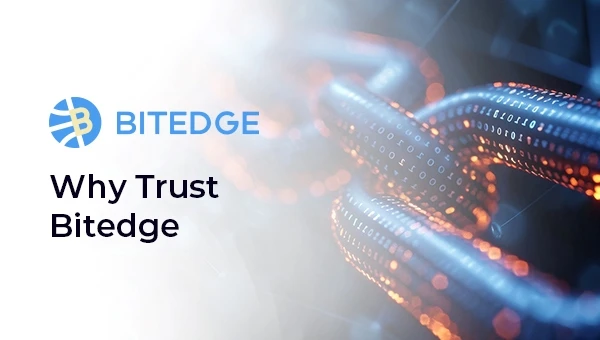
- We are the number 1 online authority for betting with crypto, with over a decade of experience in reviewing, rating, and recommending the best crypto platforms.
- Our team of experts has years of personal experience wagering with cryptocurrency online, reviewing without fear or favor to bring you the very best platforms.
- We focus on providing genuine user feedback, helpful tips, and valuable insights, rather than just generic reviews. This way, you can gain a comprehensive understanding of what you need to know before selecting the right site, including insights from other customers’ experiences..
- Over 700 betting sites have applied to be shortlisted by Bitedge – but only a select few ever make the grade. We are rigorous in our reviews and only recommend websites we’re proud to stand behind.
Bet Responsibly with your Crypto
We are strong advocates of responsible gambling, as we believe betting should be enjoyable, not risky. Bet within your limits – it is critical, as is recognizing problematic behavior and taking steps to control your gambling spend.
It’s even more important with cryptocurrencies, where it can be harder to keep a full mental overview of your spending.
Prioritize operators that provide responsible gambling tools like deposit limits, cooling-off periods, and self-exclusion options. A lack of these features is a major red flag.
When gambling, set and stick to a monthly budget. Use self-exclusion tools where necessary, and don’t be afraid to ask for help if you, or someone you care about, is showing signs of problem gambling.
Help is available, including from sites like the Gambling Addiction Hotline, GambleAware, and other services internationally.
Final Verdict – Our Top Pick for the Best No Verification Bookmakers
No-KYC betting sites are more popular than ever, especially with those looking for a private, secure, and fast experience. But not every no KYC site is safe, and there are pitfalls in choosing the wrong place to bet.
Our top picks are Trust Dice, BC.Game and Vave, as determined by our rigorous independent reviews. These are the platforms that offer the best combination of privacy, efficiency, and trustworthiness, as well as the best selection of betting markets, odds, and promos.
Honorable mentions go out to the likes of Crashino, Coinplay, and Bitsler, which also performed well in our independent tests. We have no hesitation in recommending these as some of the best no verification betting sites on the market today.
What is the best non KYC crypto sportsbook?
Trust Dice tops our list, known for its excellent reputation and a range of betting markets. However, depending on your preferences, any operator from our list is a good choice.
Am I really anonymous when placing bets at Bitcoin and crypto sites?
Crypto sites provide more privacy than traditional ones, but your wallet address can still be traced, and some operators can require KYC verification for larger withdrawals.
Are anonymous betting sites legal?
Yes, they are legal when they’re adequately regulated, so always check the licensing information.
Are No Verification Betting Sites Safe?
Common safety concerns are fraud, security, and privacy risks, so it’s crucial to choose reputable platforms.
What are the disadvantages of no KYC betting sites?
The main drawback is that you have to do thorough research and find licensed & reputable platforms. Always consider local laws & potential restrictions, look for fellow bettors’ reviews and experiences on the web, and learn how to send and receive funds via crypto wallets.
Similar Betting Pages:
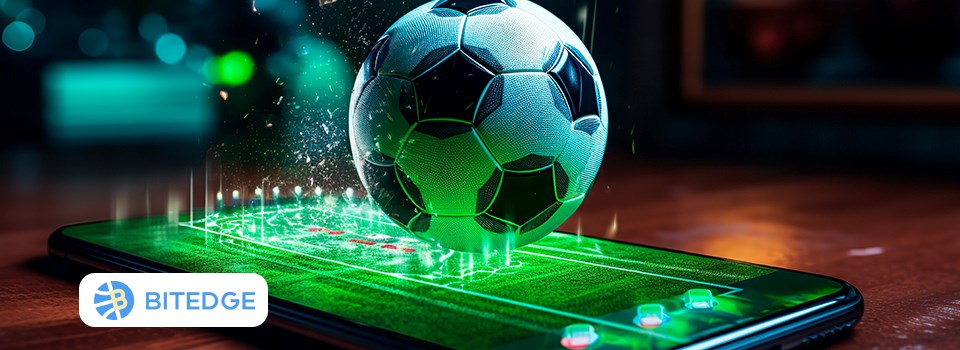


A pro writer since 2015, immersed in the world of crypto since 2016, Will built up a wealth of knowledge and experience in both crypto gambling and crypto betting, making him one of the most prominent voices in the industry. His high-quality reviews have been featured on prominent gaming platforms, making him a trusted authority in the field.
Nationality
British
Lives In
England


Facts Checked by Josip Putarek



 Fact checked by
Fact checked by 












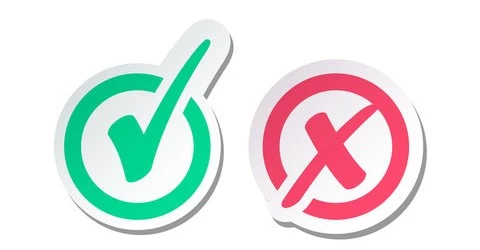



 Bitcoin
Bitcoin Bitcoin Cash
Bitcoin Cash
 Litecoin
Litecoin Binance Coin
Binance Coin

 will.wood.9964@gmail.com
will.wood.9964@gmail.com 
03/10/2024 | 12:14